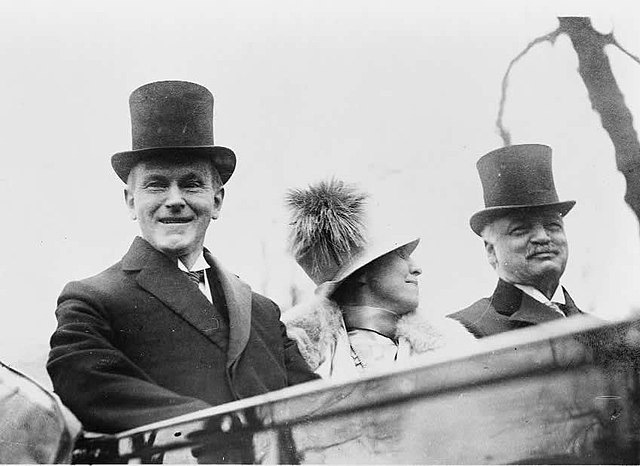Recycling an old soc.history.what-if post of mine (with one update in the URLs)
As for a timeline without young Calvin's tragic death, it is arguable
that this might change not only Coolidge's decision not to run but his
conduct as president from mid-1924 on. Robert E. Gilbert has written a
book (which I have not yet had the chance to read) entitled *The Tormented
President: Calvin Coolidge, Death, and Clinical Depression* the thesis of
which (judging from the publisher's description and from reviews) is that
Coolidge was a very effective president until his son's death: he "took
control of his party, dazzled the press, distanced himself from the
Harding scandals, and showed ability in domestic and foreign policy. His
son's death would destroy all of this. Gilbert documents Coolidge's
subsequent dysfunctional behavior, including sadistic tendencies, rudeness
and cruelty to family and aides, and odd interactions with the White House
staff."
http://www.amazon.com/Tormented-President-Coolidge-Depression-Contributions/dp/0275979318
According to the review at
http://www.calvin-coolidge.org/coolidge-the-victim.html the book's "thesis is that the tragic death of Calvin Coolidge, Junior, in
1924, caused by an infection he contracted while playing tennis on the
White House grounds, reawakened the memory of childhood traumas in a way
that threw his father into a deep depression and emotional paralysis. This
condition, which lasted until his death in 1933, effectively divided the
Coolidge presidency into two parts: a year of accomplishment and four
years that were unsuccessful, unhappy, and dysfunctional." While the
President coped with his psychological trauma, 'the nation lost its
president.' The failures of the Coolidge administration, consequently, can
be chalked up to sheer bad luck -- the combination of an unforeseeable
tragedy and a leader unequipped to control his inner reaction to it...."
As this same review notes, one problem is that this alleged decline in
presidential effectiveness does not seem to have been noticed by
Coolidge's contemporaries, even those who opposed his policies:
"The really startling feature of Gilbert's thesis is that it describes a
radical change in behavior by one of the most visible public figures of
the 1920s -- and that this supposed change escaped the notice of every
contemporary observer, friendly or hostile. Senator Hiram Johnson of
California, a political enemy of Coolidge who ran against him for the
nomination in 1924 and harbored deep suspicions of his policies, saw the
President periodically when invited to the White House and always
described him the same way, as a deeply partisan, scheming politician.
Harlan Stone, his Attorney General and Supreme Court appointee, did not
see him at the end of his term as an exhausted man, but expressed the hope
Coolidge would return to Washington as Senator from Massachusetts.
Gilbert, recognizing this inconvenient fact, argues that 'the concept of
clinical depression was less well understood in the 1920s' and that
Coolidge's depression was concealed by an already grim personality. (One
thinks of Dorothy Parker's line, 'How could they tell?')
"But this was a man with thousands of eyes on him -- reporters in need of
copy, politicians and lobbyists in need of advantage, and sharp-eyed
Washington gossips in general. At the time he left office, he was very
popular and considered highly successful. Although historians are adjured
not to trust negative evidence, the absence of comment makes one
uncomfortable..."
